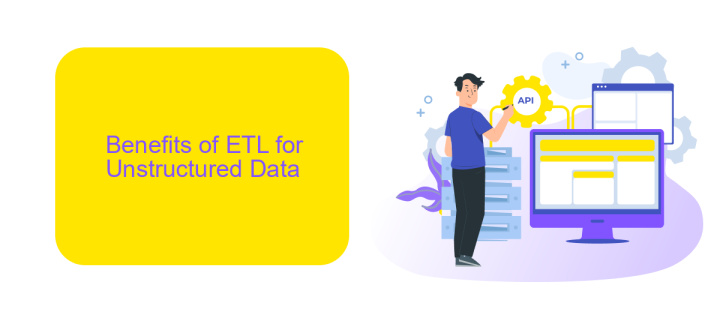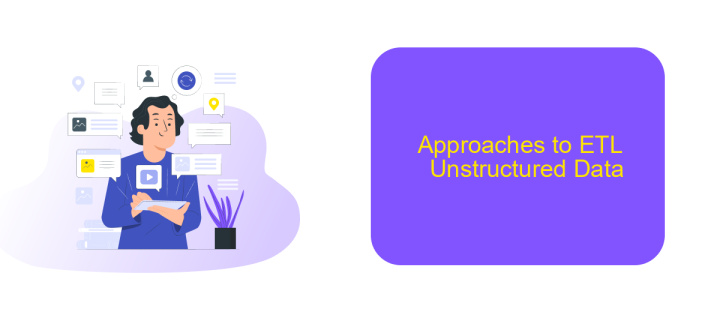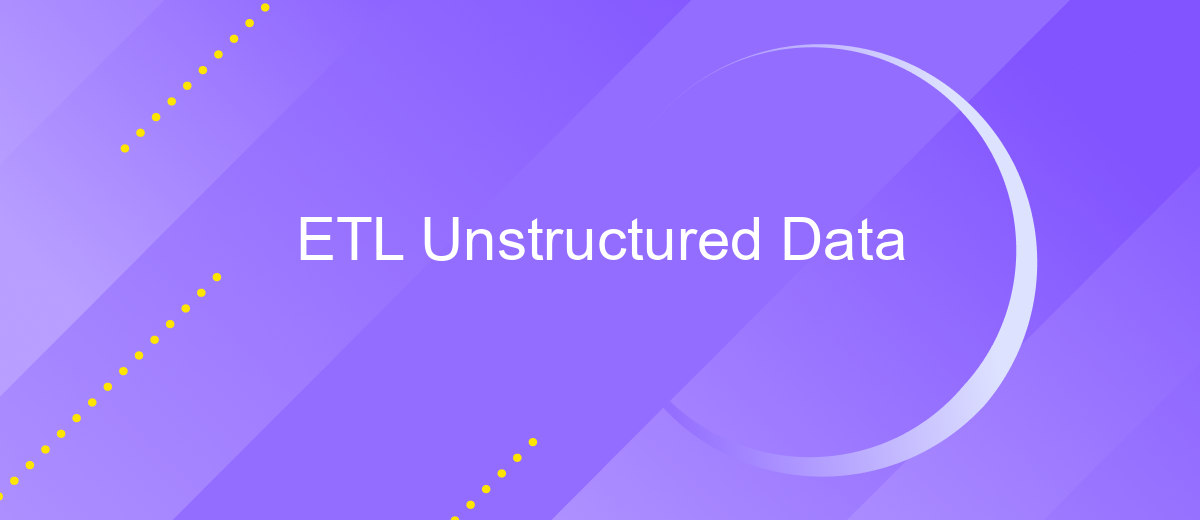ETL Unstructured Data
Extract, Transform, Load (ETL) processes are essential for managing unstructured data in today's data-driven world. Unstructured data, which includes text, images, and videos, lacks a predefined format, making it challenging to analyze. This article explores the methods and tools used in ETL processes to efficiently handle and extract valuable insights from unstructured data, ultimately enhancing decision-making and business intelligence.
Introduction to ETL and Unstructured Data
ETL, which stands for Extract, Transform, Load, is a crucial process in data management that involves extracting data from various sources, transforming it into a suitable format, and loading it into a data warehouse or other storage systems. This process is particularly challenging when dealing with unstructured data, which lacks a predefined format and can come from sources like emails, social media, and documents.
- Extraction: Gathering unstructured data from diverse sources.
- Transformation: Converting data into a structured format for analysis.
- Loading: Storing the transformed data in a database or data warehouse.
Handling unstructured data requires advanced tools and services that can efficiently process and integrate various data types. For instance, ApiX-Drive offers seamless integration solutions that automate the ETL process, making it easier to manage and analyze unstructured data. By leveraging such tools, businesses can gain valuable insights and make informed decisions based on comprehensive data analysis.
Benefits of ETL for Unstructured Data

ETL (Extract, Transform, Load) processes offer significant benefits when dealing with unstructured data. By utilizing ETL, businesses can efficiently extract valuable information from diverse sources such as text files, social media feeds, and sensor data. This process helps in converting unstructured data into a structured format, making it easier to analyze and derive actionable insights. The transformation step ensures data consistency and quality, which is crucial for making informed decisions.
Moreover, ETL tools like ApiX-Drive simplify the integration of unstructured data into various platforms and systems. ApiX-Drive allows seamless connectivity between different data sources and destinations, automating the data flow and reducing manual intervention. This not only saves time but also minimizes errors associated with data handling. By leveraging ETL for unstructured data, organizations can unlock hidden patterns and trends, ultimately driving innovation and competitive advantage.
Challenges in ETL for Unstructured Data

Extracting, transforming, and loading (ETL) unstructured data presents unique challenges due to its inherent complexity and lack of predefined schema. Unlike structured data, unstructured data comes in various formats such as text, images, and videos, making it difficult to process and analyze efficiently.
- Data Variety: Unstructured data exists in diverse formats, requiring sophisticated tools to handle different data types.
- Volume: The sheer volume of unstructured data can overwhelm traditional ETL processes, necessitating scalable solutions.
- Data Quality: Ensuring the accuracy and consistency of unstructured data is challenging due to its varied sources and formats.
- Integration: Integrating unstructured data from multiple sources can be complex without the right tools, such as ApiX-Drive, which simplifies data integration processes.
- Processing Speed: Transforming unstructured data into a usable format can be time-consuming, affecting real-time analytics capabilities.
Addressing these challenges requires robust ETL tools and platforms that can handle the intricacies of unstructured data. Services like ApiX-Drive offer seamless integration capabilities, helping organizations streamline their ETL processes and make better use of their unstructured data assets.
Approaches to ETL Unstructured Data

ETL (Extract, Transform, Load) processes for unstructured data present unique challenges due to the variability and complexity of the data formats. Unlike structured data, unstructured data does not follow a predefined schema, making it difficult to extract meaningful information directly. However, several approaches can be employed to handle ETL for unstructured data effectively.
One of the primary methods is using natural language processing (NLP) to extract relevant information from text-heavy datasets. Machine learning algorithms can also be applied to identify patterns and categorize data. Additionally, leveraging cloud-based services can simplify the ETL process for unstructured data.
- Natural Language Processing (NLP)
- Machine Learning Algorithms
- Cloud-Based ETL Services
- Data Integration Platforms like ApiX-Drive
ApiX-Drive, for instance, offers a robust platform for integrating various data sources, streamlining the ETL process for unstructured data. By automating data extraction, transformation, and loading, ApiX-Drive helps organizations to efficiently manage and analyze unstructured data, ultimately facilitating better decision-making and operational efficiency.


Best Practices for ETL Unstructured Data
When dealing with ETL for unstructured data, it is crucial to establish a robust data preprocessing pipeline. Begin by identifying the data sources and determining the most effective methods for data extraction. Utilize tools and services like ApiX-Drive to streamline integrations and automate data collection from various platforms. This ensures that the data is consistently and accurately gathered, reducing the risk of errors and inconsistencies.
Next, focus on data transformation by implementing techniques such as text mining, natural language processing, and machine learning algorithms to convert unstructured data into a structured format. It's important to validate and clean the data to enhance its quality and reliability. Finally, ensure that your data loading process is optimized for performance and scalability. Regularly monitor and update your ETL processes to adapt to new data sources and evolving business needs, maintaining the integrity and usefulness of your data over time.
FAQ
What is ETL for unstructured data?
Why is ETL important for unstructured data?
What are some challenges in ETL for unstructured data?
How can automation help in ETL for unstructured data?
What types of unstructured data can be processed using ETL?
Time is the most valuable resource for business today. Almost half of it is wasted on routine tasks. Your employees are constantly forced to perform monotonous tasks that are difficult to classify as important and specialized. You can leave everything as it is by hiring additional employees, or you can automate most of the business processes using the ApiX-Drive online connector to get rid of unnecessary time and money expenses once and for all. The choice is yours!

